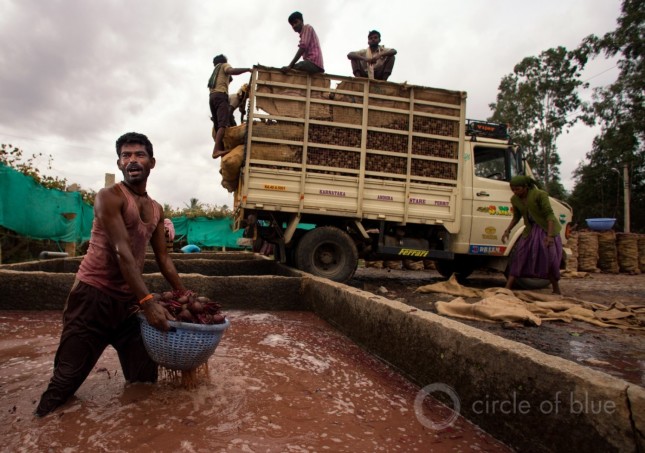-
Top 5 Posts for January 2019
›
India’s impending health crisis can be found in its toxic water supply. In January’s most popular post, Jennifer Möller-Gulland, J. Carl Ganter, and Cody T. Pope of Circle of Blue report on India’s widespread use of contaminated wastewater by farmers to raise their crops. Water contamination caused by the discharge of untreated, highly polluted industrial, municipal and agricultural wastewater has spread deeper into the country’s major rivers and food supply causing burning lakes, decreasing agricultural exports, and increasing rates of diseases. With no alternative, India’s farmers pray that wastewater will continue to flow.
-
Forever Young: Engaging Youth to Build Stability and Reduce Violence
›
“There are more young people in the world today than in any other time in the history of the world,” said Beza Tesfaye, Senior Researcher at Mercy Corps, at a recent event at the U.S. Institute of Peace on Mercy Corps’ efforts to engage youth in Somalia and Afghanistan in order to promote stability and prevent violence. “As we know, marginalized youths are the ones often to be recruited into violent movements. Not only do we have to focus on conflict, but we also have to put youth at the center of development programs to address these issues.”
-
Tomorrow May Be Too Late: Military Leaders Testify on National Security Challenges of Climate Change
›September 11, 2017 // By Amanda King
As the Senate returns from recess, passing the annual National Defense Authorization Act will be one of its top priorities—and this year it could include a potentially controversial amendment directing the Pentagon to assess the impact of climate change on national security. In the House, the Langevin amendment surprisingly garnered enough Republican support to withstand a challenge in July. Since then, two more senior military appointees have testified to the importance of understanding the challenges climate change poses to national security.
Showing posts by Amanda King.






